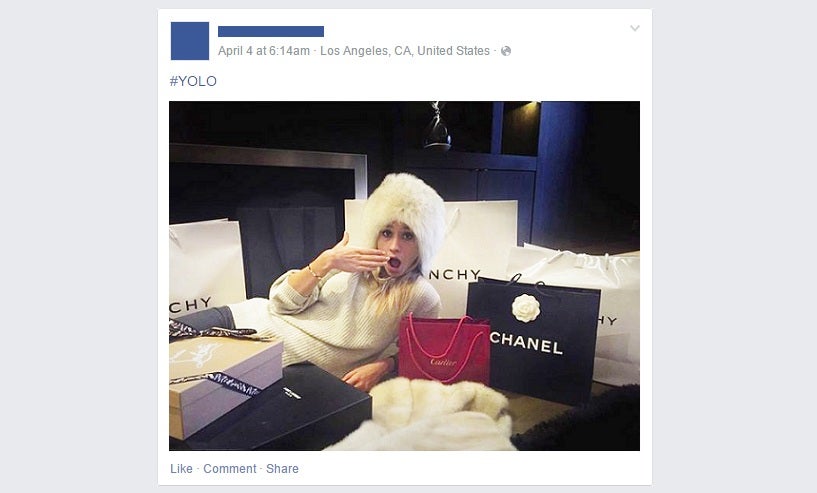Reducing Facebook use could help with depression, study claims
Social comparisons were found not to be good for people's mental health

Your support helps us to tell the story
From reproductive rights to climate change to Big Tech, The Independent is on the ground when the story is developing. Whether it's investigating the financials of Elon Musk's pro-Trump PAC or producing our latest documentary, 'The A Word', which shines a light on the American women fighting for reproductive rights, we know how important it is to parse out the facts from the messaging.
At such a critical moment in US history, we need reporters on the ground. Your donation allows us to keep sending journalists to speak to both sides of the story.
The Independent is trusted by Americans across the entire political spectrum. And unlike many other quality news outlets, we choose not to lock Americans out of our reporting and analysis with paywalls. We believe quality journalism should be available to everyone, paid for by those who can afford it.
Your support makes all the difference.New research has found that the competitive atmosphere inherent in Facebook goes "hand in hand" with depressed feelings.
In a paper entitled 'Seeing Everyone Else's Highlight Reels: How Facebook Usage is Linked to Depressive Symptoms' published in the Journal of Social and Clinical Psychology, University of Houston researcher Mai-Ly Steers expands on previous studies about the detrimental effects of Facebook, particularly with regards to the unrealistic expectations of quality of life it creates.
"Although social comparison processes have been examined at length in traditional contexts, the literature is only beginning to explore social comparisons in online social networking settings," Steers said.
Two studies focusing on Facebook's impact on participants mental health were conducted, which found that people comparing themselves with others and depressed feelings were linked.
"It doesn't mean Facebook causes depression, but that depressed feelings and lots of time on Facebook and comparing oneself to others tend to go hand in hand," Steers explained.
"One danger is that Facebook often gives us information about our friends that we are not normally privy to, which gives us even more opportunities to socially compare.
"You can't really control the impulse to compare because you never know what your friends are going to post. In addition, most of our Facebook friends tend to post about the good things that occur in their lives, while leaving out the bad. If we're comparing ourselves to our friends' 'highlight reels,' this may lead us to think their lives are better than they actually are and conversely, make us feel worse about our own lives."
Steers said that she hopes the study will highlight that technological advances are not always positive for society, and guide future interventions that target the reduction of Facebook use among those at risk for depression.
Join our commenting forum
Join thought-provoking conversations, follow other Independent readers and see their replies
Comments